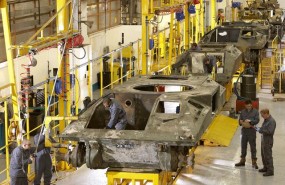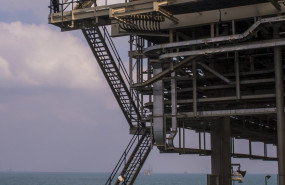Press Round-Up Short (Premium)

Friday newspaper round-up: Deloitte, Apple, BNP Paribas
UK households are facing an average tax rise of £3,500 a year by the next election, the country’s leading economics thinktank has said – the biggest increase over a parliament on records dating back more than 70 years. The Institute for Fiscal Studies (IFS) said that on current forecasts the Conservatives were on track to raise £100bn more annually by 2024 than if taxes as a share of national income had stayed the same as in 2019. – Guardian.

Thursday newspaper round-up: Evergrande, blackouts, Ryanair
Embattled Chinese property giant Evergrande has suspended share trading on the Hong Kong stock exchange only a month after it resumed trading after a 17-month suspension. Trading in its two other units – the property services and electric vehicle groups – also stopped at 9am on Thursday, according to notices posted by the stock exchange. – Guardian.

Wednesday newspaper round-up: Inheritance tax, FT, Amazon
The number of first-time buyers in the UK has fallen by more than a fifth, while homes in need of renovation are most in demand as buyers look for cheaper properties, in the latest evidence that people are struggling with higher mortgage costs. There were 22% fewer first-time buyers between January and August compared with the same period last year, according to the mortgage lender Halifax. They still accounted for more than half (53%) of all home loans agreed in the first eight months of this year, similar to a year earlier (52%).

Tuesday newspaper round-up: Workplace absences, Nissan, London offices
Stress was one of the biggest contributors to a rise in workplace absences over the past year, according to research that found the number of workers taking sick leave has hit a 10-year high The Chartered Institute of Personnel & Development (CIPD) analysed sickness absence and employee health among 918 organisations representing 6. 5 million employees, with 76% of respondents reporting they had taken time off due to stress in the past year. – Guardian.

Monday newspaper round-up: NatWest, economic slowdown, EU tariffs, Conduit Pharma, HS2
NatWest hired private detectives to look into the health of borrowers who owed money to its notorious Global Restructuring Group, it has been claimed. A “tracing agent” convicted of illegally obtaining personal information of bank customers has alleged that NatWest instructed him to report on debtors’ health conditions during the scandal at GRG. - The Times.

Sunday newspaper round-up: HS2, Babcock, Airbus
The Prime Minister is facing enormous push back from senior Tories and captains of industry due to signs that he may walk back on plans for the northern section of the HS2 high speed rail service before the party conference next weekend. Rishi Sunak was expected to meet with the Chancellor on Monday or Tuesday and an announcement was expected to follow by the middle of the week, several sources told the Observer. One source however said that it was not inconceivable that Sunak might yet decide otherwise.

Friday newspaper round-up: Sterling, interest rates, Brexit, heat pumps, Rupert Murdoch
The pound dipped to its lowest level in six months, and bonds rallied after the Bank of England held borrowing costs steady for the first time since November 2021 in a finely balanced decision. Investors sold sterling after the announcement, pushing the pound 0. 5 per cent lower against the dollar to $1. 22, its weakest level since March. - The Times.

Thursday newspaper round-up: Wilko, green targets, inflation, Nationwide, high street
Wilko’s administrators are to question majority shareholder Lisa Wilkinson on the £77 million in dividends paid out to investors in the decade before the retailer’s collapse, as calls grow for the Wilkinson family to plug a £56 million hole in workers’ pension pots. The Times understands that PwC will conduct a review into the dividends paid out to the Wilkinson family and the retailer’s other directors as part of a wider investigation into company transactions in the years building up to the administration.

Wednesday newspaper round-up: Oil prices, IPO market, Tony Blair
Rishi Sunak is facing a fresh setback to his target of halving inflation as oil prices hit $95 for the first time this year. The price of Brent crude closed in on $96 per barrel on Tuesday, the highest level since November 2022 as Russia and Saudi Arabia conspire to limit production and push up global costs. Inflation figures published on Wednesday [today] are expected to show the first acceleration in consumer prices since February. Analysts have forecast a 7. 1pc rise for August on the year, up from July when consumer price inflation came in at 6.

Tuesday newspaper round-up: Electric cars, supermarkets, HS2, oil prices, Fed protests
Hopes for the mainstream adoption of electric cars have been punctured by figures revealing a fall of more than 11 per cent in the sale of zero-emission vehicles to private buyers. The Society of Motor Manufacturers and Traders has said that motorists are holding back from the switch because of continued uncertainty about whether a government ban on petrol and diesel cars will be enforced, the cost of electric vehicles, the cutting of financial incentives, and fears about the lack of a public recharging network.
Monday newspaper round-up: Rents,.Manufacturers, BAE Systems
Residential rents across Britain are rising at their fastest on record as high interest rates shut would-be buyers out of the property market. Monthly rental costs are on average 12 per cent higher than they were this time last year, up £140 to breach £1,300 for the first time, according to the estate agent Hamptons. Separate research from the property website Rightmove suggests that more than a third of homes for sale have had their asking prices reduced as vendors try to drum up demand.
Sunday newspaper round-up: Labour, British Land, Rolls-Royce
Investors are now backing Labour, dealing a blow to the Prime Minister's efforts to rebuild the Tories reputation for sound money. Two thirds of money managers and traders canvassed by Bloomberg said that the best outcome for markets from the next election would be either a Labour government or a coalition led by Labour. Four fifths of those polled said that confidence in British assets had yet to recover from the mini-Budget crisis under Liz Truss. - The Sunday Telegraph.

Friday newspaper round-up: HS2, BP, flotations
The HS2 high-speed rail line is at risk of further cuts to its route north of Birmingham as the government considers whether it can afford high-cost projects in advance of the autumn budget. The project has been mired in fresh uncertainty after the prime minister’s spokesperson refused to guarantee on Thursday it would run to Manchester, after publication of a photographed document suggesting further cuts were under discussion. – Guardian.

Thursday newspaper round-up: Cash, ARM, EY
Households could save up to £400 a year on energy bills under a new means-tested scheme to insulate more than 300,000 of Great Britain’s draughtiest homes. The government is spending £1bn on grants for homes that have low energy efficiency ratings and are in lower council tax bands. – Guardian.

Wednesday newspaper round-up: Pensions, Apple, interest rates
Treasury officials are discussing a one-off break from the pensions triple lock that could save £1bn by preventing a bumper 8. 5% increase in the state pension next year. The government is considering stripping out public sector bonuses that were awarded to workers to prevent strikes over the summer from the calculation that determines the annual rise in pensions. – Guardian.

Tuesday newspaper round-up: Tax cuts, CBI, iPhones
Jeremy Hunt has warned that the high pace of inflation in Britain will prevent pre-election tax cuts this autumn amid signals from the Bank of England that another rate rise to ease cost of living pressures is coming next week. Speaking in India, the chancellor said he would be wary of putting money into the pockets of consumers in his November package because of the danger that it would overstimulate the economy and make it more difficult for Threadneedle Street to bring inflation down.

Monday newspaper round-up: BMW, shop prices, Waitrose, Bernanke
BMW will unveil a significant investment in its electric Mini plant in Oxford on Monday, a move that will secure 4,000 jobs and strengthen the UK’s electric vehicle supply chain. The investment by the German carmaker is the result of “extensive” engagement with the UK government, according to the business and trade department, and marks a reversal of plans to move electric Mini production abroad to China. – Guardian.

Friday newspaper round-up: Pensions, vapes, hiring, Deloitte
Maintaining the triple lock on state pensions could add as much as £45bn to the welfare bill by 2050, putting “insurmountable pressure” on the government to increase the minimum retirement age, according to the Institute for Fiscal Studies. In a report published ahead of the release next week of official data for earnings growth, which will be used to set the annual increase in pensions, the IFS estimates spending on retirees could rise by a further £2bn from April 2024.

Thursday newspaper round-up: Google, IAG, Waitrose, Goldman Sachs
Google faces a new multibillion-pound lawsuit from UK consumers accusing the company of contributing to cost-of-living price rises. The lawsuit, on behalf of every consumer in the UK, says that Google has stifled competition in the search engine market, which caused prices to rise across the UK economy. – Guardian.

Wednesday newspaper round-up: Living standards, North Sea oil production, property funds
The UK air traffic system failure that resulted in more than 2,000 flights being cancelled has been blamed on “an extremely rare set of circumstances”, as the aviation regulator opened an inquiry into the meltdown that caused chaos for passengers. The Civil Aviation Authority announced its own independent review as it submitted an initial report from Nats, the air traffic control services provider, into the incident to the transport secretary, Mark Harper. – Guardian.